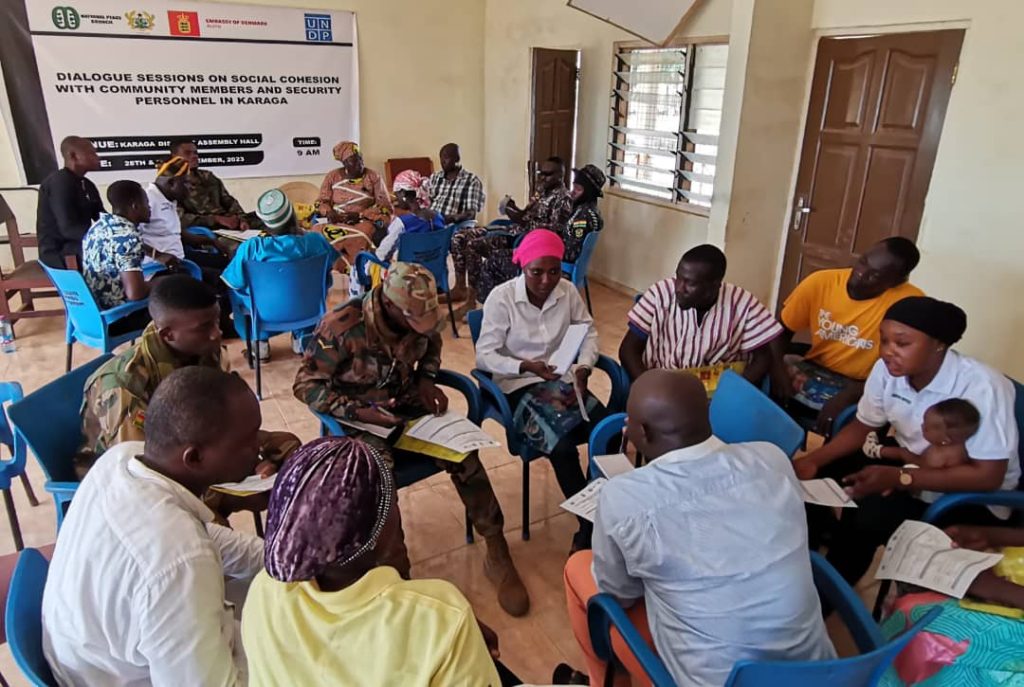By Albert Futukpor
Karaga (N/R), Dec. 4, GNA – The Northern Regional Peace Council (NRPC) has organised a dialogue session on social cohesion at Karaga in the Northern Region to facilitate open discussions, to address local issues, stereotypes and aspirations.
The dialogue session sought to promote mutual understanding among community members, security personnel and Fulbe settlers.
It was also to explore collaborative efforts between local communities and security personnel to counter the threat of violence and extremism in the broader region as well as leverage the successful strategies of the NRPC to strengthen existing peacebuilding initiatives and adapt them to the current context.
About 60 residents drawn from different actors and stakeholders in the district, including the youth, women, traditional authorities, religious leaders and Assembly Members, the security services and selected members of the Fulbe community were the participants.
The two-day event was part of the NRPC’s Preventing Violent Extremism Atlantic Corridor project, which is funded by the Government of Denmark through the United Nations Development Programme.
The project seeks to prevent and address the immediate localised drivers of radicalisation leading to violent extremism in target communities, while providing support to strengthening the “Infrastructure for Peace” such as mechanisms for early warning, and early response at local-level.
Participants discussed threats to social cohesion at the community level, including land disputes, farmer-herder conflicts, greed, personal interest, and discrimination as well as shared their views on conflicts considering it as a natural part of life involving disagreements, self-interest, and misunderstandings.

They also explored the differences between extremism and violent extremism identifying potential actors (youth, unemployed individuals) and drivers (unemployment, love for material wealth, politics) of violent extremism.
There were also group works where community members and security personnel collaborated to identify and justify development priorities in the Karaga District, including peace and security, potable water, electricity, good roads, schools, and hospital facilities.
Facilitators of the dialogue highlighted issues of prejudice, perception, and discrimination, emphasising the need for community members to see one another as unique human beings with different backgrounds.
They further emphasised the importance of focusing on common humanity rather than differences in ethnicity, sex, or origin.
Alhaji Abdul Razak Saani, a former Northern Regional Director of the National Commission for Civic Education and Council Member of the NRPC, who was the main facilitator, expressed need for community members and all stakeholders to set aside their differences in terms of religion, tribe or social standing and live together in peace and promote social cohesion.
He expressed the need for them to cooperate with the security services in the area to enable them to discharge their duties to ensure law and order in the communities.
Madam Saanatu Mohammed, who represented Queen Mothers of the area, spoke against backbiting, saying it promoted hatred and destroyed social cohesion and advised community members to desist from it to ensure unity.
Mr Baba Kamaldeen, Executive Director, Young Peace Ambassadors, who was a participant, lauded the initiative and said lessons learnt would be put into practice to ensure that the community and security services worked together for the benefit of the area.
Some other participants expressed the impact of the session and indicated that it was important to give any relevant information to the security services on time to help them do their work effectively.
They further observed that there was a need to communicate well and be always truthful because telling lies could destroy social cohesion.
Mr Iddrisu Mohammed Saani, Karaga District Chief Executive, expressed gratitude to the NRPC for the initiative and encouraged residents to collaborate with the security services to keep the peace and security of the district.
GNA